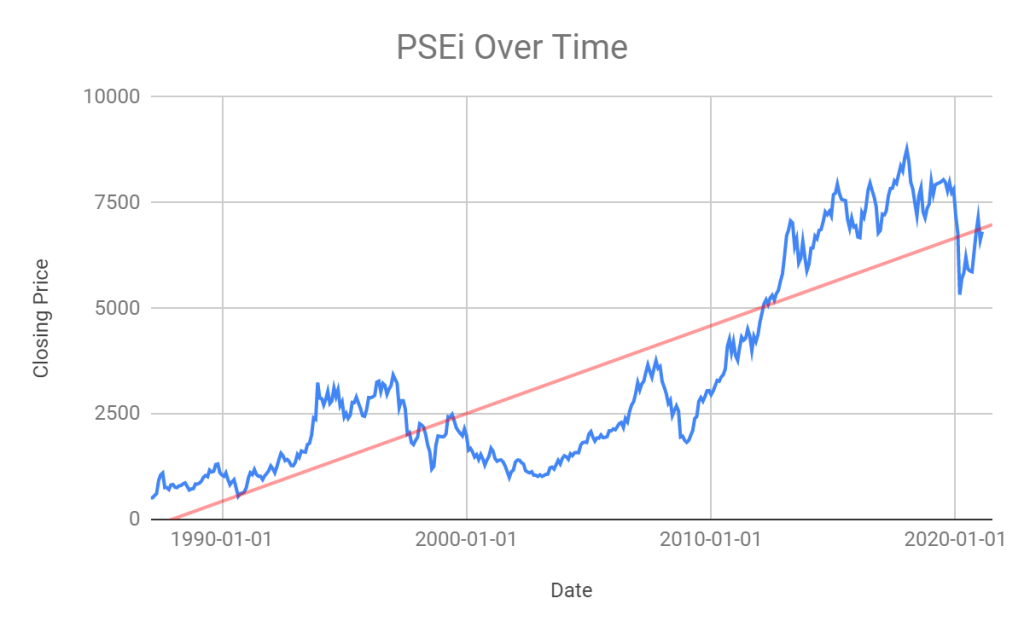How to get 8% annual returns from the stock market with 3 minutes a month and zero knowledge

Have you heard of the preppers?
Preppers are people who obsess over being ready for worst case scenarios.
They have emergency supplies of everything - food, water, medicine, etc., and a good number of them know survival-related skills such as self-defense, growing food, and making potable water.
For centuries, these skills were essential for daily life. Each person had to gather food and make shelter to survive.
Over time, however, technology improved and made survival an afterthought.
For example: In the 1930’s, one farmer could feed around 4 people.
Now in 2021, a single farmer feeds over 150 people thanks to tractors, fertilizers, growing techniques, and so on.
Skills that were once necessary for survival have now been reduced to a mere hobby.
The world grows richer over time.
Technology has massively improved over the past century. Medicine. Computers. Cars. Buildings.
Humans innovate, and innovation leads to growth over long periods of time.
Invest in this trend using a stock market index.
A stock index is a group of stocks that represents a specific market.
Here in the Philippines, we have the Philippine Stock Exchange Index (PSEi), which is a basket of 30 large stocks that represent the whole Philippines, such as Jollibee, Ayala, Globe, PLDT, Meralco, and so on.
Historically, the PSEi has grown at around 8% per year on average.
It hasn’t been a smooth ride. There were times when it was low, and there were time when it was high. But over decades, the PSEi averaged at around 8% per annum.

This uptrend happens because companies increase productivity over time. Companies can come and go, but markets as a whole tend to grow.
Because of this general uptrend, index investing is a reliable way to build wealth over long periods of time.
The 2 keys to stock market index investing
If you want to try index investing, here are 2 tips to follow:
First: Select a low-cost index fund
Index funds are mostly the same. They buy the same set of stocks with the same proportions.
This means that you should invest in the cheapest index fund you can find. Expensive index funds don't give you better results. In fact, a 1% fund fee can easily reduce your retirement earnings by 30%.
In the Philippines, most people recommend FMETF, an index fund listed on the stock market. It only charges 0.5% per year, versus the usual 1% of most other Philippine funds.
For the US stock market, you can look into SPY, which is also known for its low fees.
Second: Have a long time horizon
Growth is bumpy. This is the one downside of index investing.
The worst thing you can do as an index investor is to repeatedly exit and re-enter your investments. This is probably the number one reason why people lose money in the stock market.
You get bad results when you sell because “markets are bad”, and buy when things are up because “markets look good”. This causes you to buy high and sell low - a sure formula to lose money.
Be willing to hold the index for at least 15 years. Never invest cash that you’ll need for day to day expenses - this is NOT a get-rich-quick scheme.
When it comes to index investing, slow and steady wins the race.
Conclusion
If you’re both lazy and patient, index investing can be a perfect fit for you.
You don’t need to put effort in picking “the perfect stock”. You can just wait and trust that general economic improvements will make your investment grow over long periods of time.
Slow and steady wins the race!



